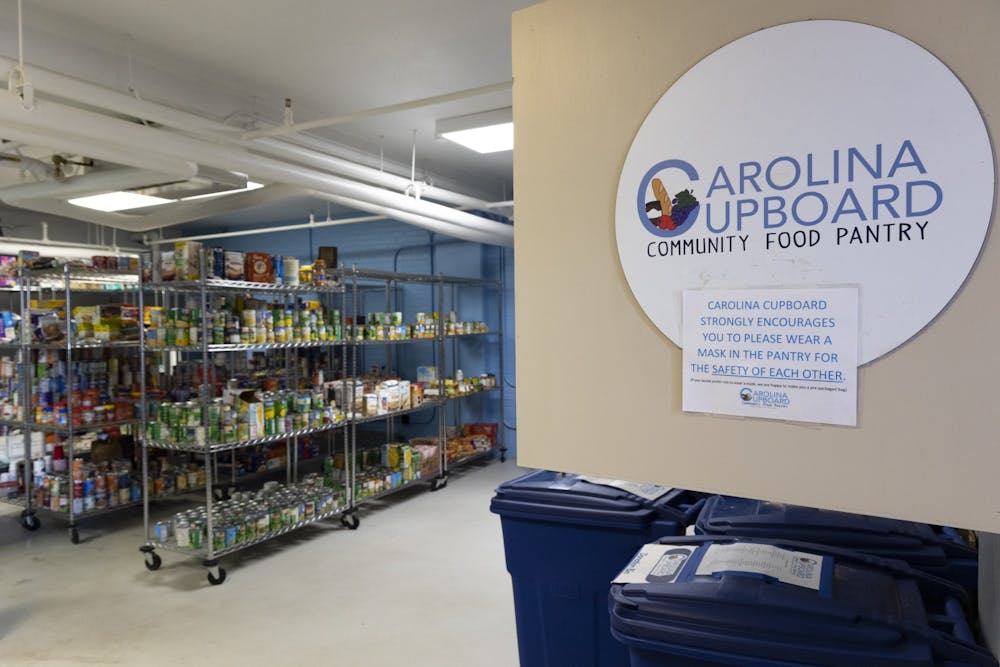September is Hunger Action Month and many UNC food pantries and organizations are aiming to combat and destigmatize food insecurity on campus.
A pre-COVID-19 study by Professor Maureen Berner reported that 56.2 percent of the entire UNC student body felt food secure, 21.6 percent were on the margins and 22.2 percent reported low security or very low security.
Berner said when students were asked to score their academic progress, the food-insecure students consistently rated themselves at a lower level than the food-secure students.
As the co-president of UNC’s Nutrition Coalition and a current candidate getting her master's in public health in Dietetics, Rebecca Scothorn said she has watched CJ’s Cupboard, a student-led food pantry located in Gillings School of Public Health, grow since 2021.
Ellie Geiselhart, a co-chair for CJ’s Cupboard, is a Nutrition major trying to destigmatize the use of food pantries and show the importance of nutrition to all students.
“A lot of college students don’t know where they can get help because the help isn’t being provided to them and it's not always easy to find information about where you can get food aid,” Geiselhart said.
She also said CJ’s Cupboard is important because it provides access to food for all students — ranging from those who are financially struggling to those who occasionally forget to bring food to campus.
A possible solution to food insecurity at UNC is increasing awareness of on-campus food pantries, Geiselhart said.
“For a lot of people who are food secure, they have never even thought twice about not having access to food,” she said. “We don’t have a lack of food being provided to people; the issue is being able to afford it.”



